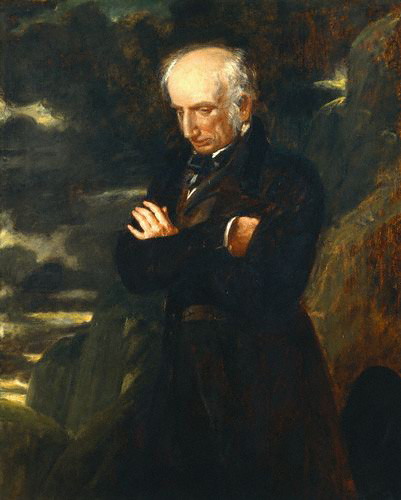As a writer, the greatest gift I can offer a reader is the ability to feel. Love, anger, or the powerful sense of being seen—my books come with an implicit promise. I intend to transport you, enlighten you, and to invite you to inhabit someone else’s shoes. You will tread in their footsteps, see through their eyes, and be consumed by their emotions. This is my gift, my bond with my readers.
I truly believe all writers are empaths at heart. That’s why last week was especially hard—a whirlwind of emotions and memories, crashing upon me at the same time.
In Atlanta, a rare snowstorm—an event last seen a decade ago—brought the city to a standstill. At the same time, the world paused to honor President Jimmy Carter, a man synonymous with empathy and kindness. He was my first president, well the first I can actually remember. The plain spoken, proud son of Georgia, gave the world a lifetime of service. His passing like his presidency, brought together people across political divides, reminding us of the compassion that once defined leadership.
On the other coast, in California, a cruel trifecta of fire, wind, and drought ignited devastating wildfires. Over 20,000 acres have burned in the Palisades Fire. You know the names—Malibu, Mandeville Canyon, Brentwood, and the hills of Encino and Tarzana. The Fires in Eaton which includes devasted generational communities of Pasadena and Altadena–have been hit with significant property damage. The Hurst, Kenneth, Archer and Lidia Fires still rage at the time of this recording.
We’ve Seen This All Before
Throughout history, natural disasters have tested human resilience:
* 1556: The Shaanxi Earthquake in China claimed 830,000 lives, the deadliest recorded.
* 1692: The Port Royal Earthquake and tsunami destroyed two-thirds of the “Wickedest City on Earth,” killing over 2,000. Neighboring islands sent organized looters.
* 1815: Mount Tambora erupted in modern-day Indonesia, leading to the “Year Without a Summer” and a global death toll of 80,000–100,000.
* 1900: The Great Galveston Hurricane killed as many as 12,000.
* 1931: The China Flood led to approximately 4 million deaths from drowning, starvation, and disease.
* 1970: Cyclone Bhola in Bangladesh caused over 300,000 deaths.
* 2004: The Indian Ocean Tsunami killed over 230,000 people across 14 countries.
* 2005: Hurricane Katrina left 1,800 dead and caused $161 billion in damages, with long-term displacement of residents.
* 2010: The Haiti Earthquake caused over 222,000 deaths and displaced over 1.3 million people.
* 2011: The Tōhoku Earthquake and Tsunami in Japan triggers the Fukushima nuclear disaster and kills over 19,000 people.
* 2017: Hurricane Maria in Puerto Rico caused 2975 deaths and massive infrastructure failures. Puerto Rico was left without power, water, or basic services for months.
* 2017: Hurricane Harvey in Texas wreaked havoc, leaving thousands dead and causing $125 billions in damages.
2024 Hurricane Helene
Hurricane Helene devastated six Southern states from September 24–29, 2024, claiming at least 236 lives. Entire towns in the far inland mountains of North Carolina—Chimney Rock Village, Marshall, and Hot Springs—were essentially washed away by floods.
Helene’s damage was personal. It struck my hometown of Aiken, South Carolina—a small town known for horse racing and Refrigerator Perry of the Chicago Bears. My aunt and cousins were without power for almost a week. The massive oak outside the 5-and-dime store where I had my first job was ripped from the concrete sidewalk by the storm’s ferocious winds. When I visited Aiken in December, two months after the hurricane, the town still bore the scars. Fallen trees littered the landscape, and many roads and houses remained in disrepair.
Miss me with the idea that this is what we deserved. Miss me with the craven spirit that left people frightened and hopeless, thinking no help was coming because this disaster unfolded during a contentious political season.
No place or community is immune to catastrophe. Each disaster brings grief, rebuilding, and, most importantly, a need for solidarity. But are we up to the task? Increasingly, a spirit of division and disdain seems to overshadow the empathy we once showed in times of tragedy. Have we lost our humanity?
Going Back to Cally
Over 180,000 people have been evacuated, and at least 10 lives have been lost in the fires ravaging California. Sadly, that number will likely rise once the flames are contained. But how do we contain the blaze consuming our humanity? Instead of unity, many are quick to condemn, point fingers, or dismiss the devastation as a plight of wealthy Malibu residents or Hollywood elites.
When disaster strikes the rich and famous, cynics are eager to believe they deserved it. But what about places like Chimney Rock or Aiken or other less affluent communities devastated by storms? Did they deserve it? Are you saying the God you believe in has condemned them as well? Tragedy doesn’t discriminate based on wealth, geography, or political allegiance.
Empathy isn’t about whether someone “deserves” to suffer. It’s about recognizing our shared humanity in the face of catastrophe.
Consider this: the Federal Emergency Management Agency (FEMA) is funded by taxes from both blue and red states. Blue states, often with liberal politics, contribute the most to federal aid, including FEMA dollars. Meanwhile, red states, more prone to natural disasters, tend to receive more federal funding relative to what they contribute. Could it be that we need each other?
If we let division overshadow compassion, we risk eroding the foundation that binds us as a nation. We are called to love our neighbors as ourselves. But here’s the question: when was the last time you chose to love someone as much as you love yourself?
Subscribe for free. Get Vanessa’s take on publishing, challenges, and opportunities, drawing from her journey as an indie author turned traditionally published powerhouse: 25 novels and counting.
Atlanta’s and Texas’s Snowmageddon
Ten years ago, on January 28, 2014, Atlanta experienced a rare snowstorm—just two-and-a-half inches of snow turned interstates into parking lots. People were stranded for hours, some overnight. Weather advisories had warned of impending danger, but when the morning came with no snow on the ground and no sleet in the air, most assumed the storm had passed.
I remember leaving my house around 9 a.m. for a dental appointment. By 10 a.m., I had clean teeth but could barely drive home. Tragically, 13 people lost their lives. Life can change quickly, as that day reminded us. Eventually, we thawed out and survived being the butt of jokes for months.
Fast forward to 2022, during Winter Storm Uri in Texas. Extreme cold, snow, and power outages swept across the state, taking over 210 lives. While government officials argued and finger-pointed, neighbors stepped up. Families opened their homes, sharing warmth and shelter. I used Instacart to send water to friends who had no running supply.
In both of these “snowmageddons,” a profound truth emerged: empathy surged. People helped people. Compassion triumphed over adversity. These moments remind us of our capacity to care, even in the harshest conditions.
Back to Finger Pointing
The news has already shifted its focus in Los Angeles to looters, sidestepping the stories of everyday people who lost their homes or whose retirement facilities were reduced to ashes. Instead, we see blame placed on budget cuts and political decisions. Meanwhile, the unregulated cesspools of Facebook groups are busy mocking “Hollyweird” and spinning the tragedy into another divisive narrative.
I hope in my heart that for every negative story circulated, there are countless acts of kindness—neighbors helping neighbors, communities checking on the most vulnerable, and strangers opening their homes to those in need.
We still have power in these moments. We can step away from toxic conversations. We can amplify stories of love and solidarity instead of hatred and blame.
The goal isn’t to deepen division but to remind ourselves of what’s at stake. We need to care for one another, not because of where we live but because we all share this human experience.
It is possible—to mourn together, to heal together, and to rebuild together. If we can’t, can we at least choose silence—do the quiet “thoughts and prayers” thing we do when there’s a mass shooting?
What Should We Do?
If we choose to mourn and heal together, we must:
* Speak with empathy.
* Listen actively.
* Offer comfort to those in need.
As Proverbs 16:24 reminds us, “Gracious words are like a honeycomb, sweetness to the soul and health to the body.” Listening is helping. Platitudes are cheap. Empathy heals.
What Books Can We Read
As a book girly, I’ll make some recommendations:
* A Grief Observed by C.S. Lewis: A deeply personal account of loss and healing.
* God Will Carry You Through by Max Lucado: Reflections on God’s sustaining grace.
* Sing, Unburied, Sing by Jesmyn Ward: A haunting exploration of grief and resilience.
* Breathe: A Letter to My Sons by IMANI PERRY: A lyrical exploration of life, love, resilience and grief and systematic loss.
* See You on the Other Side by Rachel Montez Minor: A children’s book that provides comfort to the little ones grieving or coming to terms with loss.
Places We Can Donate
Money is action. Every little bit helps.
For LA, choose:
* United Way of Greater Los Angeles: Wildfire Response
* American Red Cross-Wildfire Relief
For Hurricane Helene, choose:
Back To The Man from Plains
On January 9, 2025, President Carter’s casket was welcomed at the snow-capped National Cathedral, a grand limestone church with arches, ribbed vaults, flying buttresses, and over 200 stained-glass windows, including one containing a moon rock from Apollo 11.
The Rt. Rev. Mariann Budde presided as Carter’s casket was ushered into the cathedral, observed by dignitaries and all living presidents. Her words echoed: “Let us also pray for all who mourn, that they may cast their care on God and know the consolation of his love.”
Later that day, the same casket would find its way into the humble pine wood church, Maranatha Baptist, in Plains, Georgia. There, a simpler service with familiar faces—friends and neighbors Carter had known all his life—would gather to say goodbye.
In both services, one grand and the other modest, there will likely be a shared refrain: Jimmy Carter’s faith mirrored American ideals, particularly the belief that “we are all created equal in the image of God.”
We are all created equally. We face suffering equally. Whether the wind howls, the rain menaces, the earth quakes, or fires rage, destruction and loneliness do not discriminate. To move closer to a more perfect union, we must embrace empathy. It is my hope that in places as different as rich limestone cathedrals and honest pinewood chapels, empathy and humanity can coexist.
I challenge all writers to help restore empathy in the world.
This is a public episode. If you’d like to discuss this with other subscribers or get access to bonus episodes, visit vanessariley.substack.com/subscribe
Originally posted 2025-01-14 14:10:00.




 There are many other opportunities to embarrass yourself at a wedding (and given the propensity of brides to hire photographers and videographers, these moments are captured for posterity). Even if you are only a guest, you aren’t immune to being caught up in the wedding disaster hall of fame. Dance floor escapades, bouquet toss brawls, and unplanned toasts are all fodder for the awkward situation generator.
There are many other opportunities to embarrass yourself at a wedding (and given the propensity of brides to hire photographers and videographers, these moments are captured for posterity). Even if you are only a guest, you aren’t immune to being caught up in the wedding disaster hall of fame. Dance floor escapades, bouquet toss brawls, and unplanned toasts are all fodder for the awkward situation generator.












 The religion of nature
The religion of nature

 anniversary dolls
anniversary dolls




